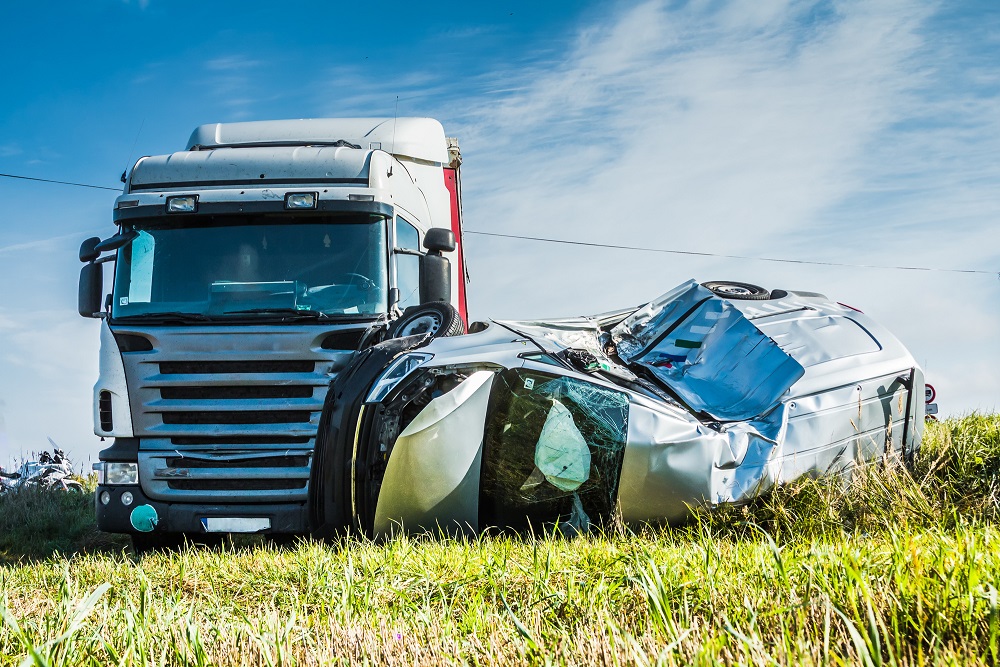Contents of this Post
ToggleRichmond, Virginia’s dense network of interstates is a vital artery for commerce. It also makes the city a hotspot for serious collisions involving commercial trucks. Richmond has recently ranked among the riskiest cities for drivers nationwide, with over 1,000 reported crashes this year alone, leading to around 550 injuries and six fatalities. Even amid a commendable 32% reduction in traffic‑related deaths over the past year, the sheer number of incidents underscores how pervasive and urgent the threat of truck collisions remains for residents and visitors alike.
Against this backdrop, understanding liability in truck crashes becomes critically important. That’s where a seasoned Truck Collision Attorney in Richmond can make a pivotal difference—by pinpointing all responsible parties, whether it’s the driver, trucking company, cargo loader, or vehicle manufacturer. This post will guide injured parties through the complex web of potential liability sources, helping them navigate Richmond’s legal landscape with clarity and confidence.
The Truck Driver’s Role
The truck driver is often the first person to be held responsible for the accident. If drivers act negligently, like being distracted, driving over the speed limit, or breaking traffic laws, they can be liable. Another significant contributing factor is fatigue, since many drivers spend several hours on the road. There are already restrictions on maximum driving hours, but those restrictions are ignored. Breaking rules can lead to some major accidents.
The Trucking Company
Even the company that hired the driver could be held liable. Unrealistic deadlines require urgent deliveries, and so, to meet such deadlines, drivers might resort to unsafe driving. This pressure indirectly results in unsafe behavior by the driver. Taking care of vehicles is another important task. A company can be held responsible if its refusal to repair, service, and inspect the trucks led to a failure. Another area that faces criticism is hiring practices in the trucking industry. If the company did not conduct background checks on its drivers or properly train them, it can be held liable for negligence.
Vehicle Manufacturers
On some occasions, the vehicle itself could be defective. If any truck component fails due to defects in the manufacturing process, the manufacturer may be liable. This can include malfunctioning brakes, steering mechanisms, or other vehicle components. Where this is the case, it will be more important than ever to show that the defect existed before the accident. This liability is often established through product recalls and reports of defects.
Cargo Loaders
Incorrect freight loading may cause instability. When a truck is transporting something and it becomes loose or falls, the driver loses control. People loading up the vehicle should secure and balance the cargo. Neglecting to do so can make one liable for any accidents that may later occur. This can also happen when a truck is overloaded, which increases the chances of accidents.
Maintenance Providers
The safe operation of any commercial truck requires consistent maintenance. Organizations or persons managing these automobiles must thoroughly inspect and service them. Those in charge of maintenance can be held liable if a mechanical failure occurs because of negligence in maintenance. In such scenarios, it becomes crucial to document maintenance activities.
The Role of Other Drivers
In some cases, other vehicles involved in the crash also contributed to it. Another driver driving dangerously, breaking the law, etc., may be partly to blame. Establishing what all parties were doing at the time of the incident will clarify how the accident took place and who may be at fault.
Government Authorities
Accidents can also occur due to the condition of the roads. If poor road maintenance or lack of signage leads to a crash, government entities charged with road maintenance can also be liable. This shows that authorities knew of the dangers and did nothing to mitigate them.
Insurance Companies
Insurance goes a long way when handling insurance after a truck accident. Identifying which insurance policies are applicable is complicated and requires the participation of different parties. Insurance companies examine the particulars to determine whose coverage applies. When it comes time to negotiate with the insurers who may end up paying for your damages, you need a clear understanding of the specifics of the accident.
The Importance of Timely Action
If something happens, it is crucial to act immediately. Collecting fresh evidence can make all the difference when your case goes to court. This includes photos, individual witness observations, and what has come through in official reports, presenting a composite picture of the event. When action is delayed, evidence can be lost, and cases can be weakened.
Final Thoughts
Figuring out who is to blame for a commercial truck accident is complex and should be based on multiple factors. In addition to the driver and the company, manufacturers and other drivers could also be responsible. Knowledge of these factors enables the affected parties to seek proper compensation and justice. Reaching out immediately to professionals can act as a change and be helpful after such incidents.

